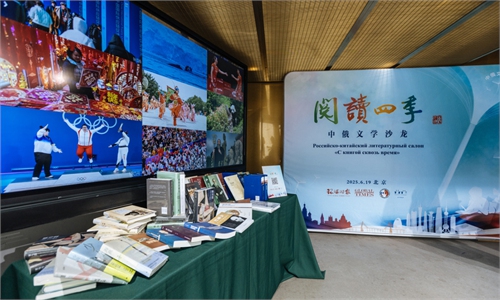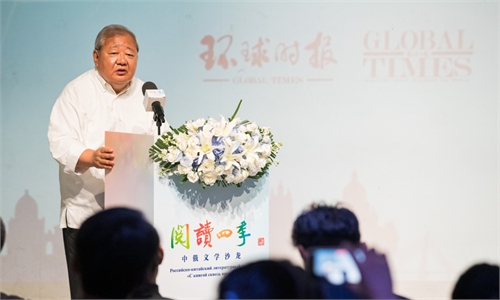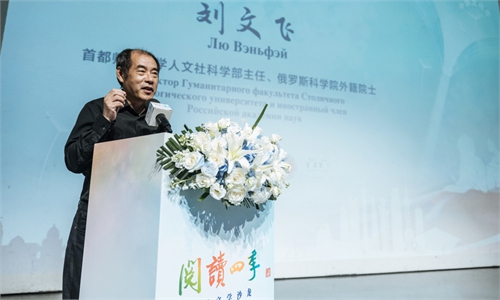ARTS / CULTURE & LEISURE
Chinese, Russian literature documents WWII memories
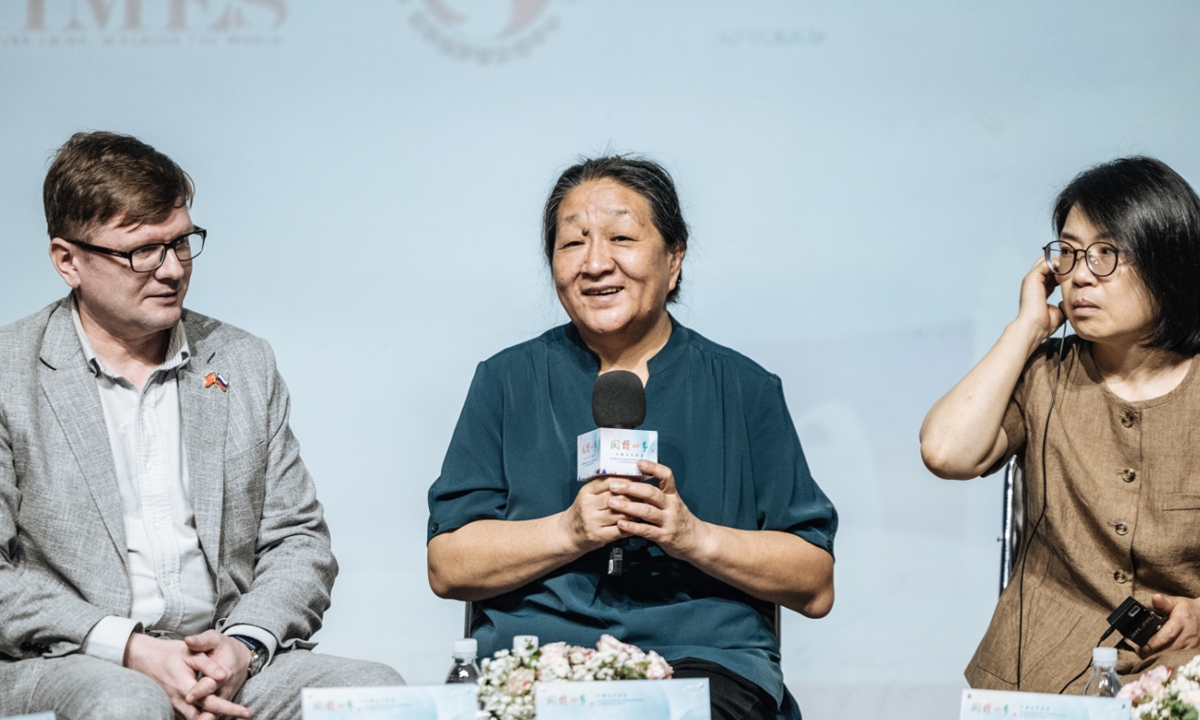
Zhao Guilian
Editor's Note:
Against the backdrop of the "China-Russia Years of Culture," the "Reading through the Seasons" China-Russia Literature Salon was held by the Global Times and the Russian Cultural Center in Beijing on June 19, 2025 with the participation of renowned experts in Chinese and Russian literature. Zhao Guilian, a veteran translator and a professor at the School of Foreign Languages, Peking University, attended the event, during which she explained that Chinese and Russian literature share many common values and emphasized the significance of anti-fascism literature in the current era. This article is based on her speech at the event.
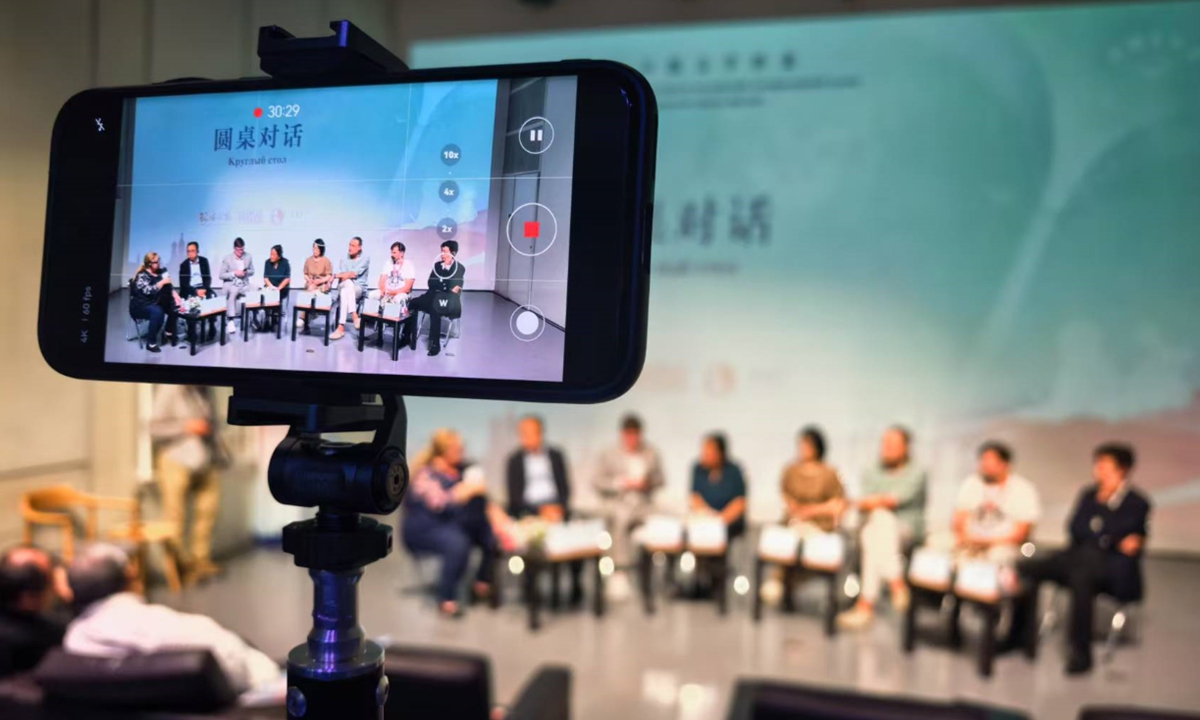
Experts talk at a roundtable session during the Global Times "Reading through the Seasons" China-Russia Literature Salon on June 19, 2025 in Beijing. Photo: Liu Yang/Global Times
My research focuses on Russian literature and culture, particularly that of the 19th century. In recent years, I've extended my academic exploration further back in time to study literary relics from ancient Kievan Rus, the first East Slavic state in Eastern Europe that existed from the late 9th to the mid-13th century, such as cultural threads tied to texts like Sermon on Law and Grace, Tale of Boris and Gleb, and The Russian Primary Chronicle.
This scholarly path is like assembling a puzzle in which each historical piece helps us reconstruct the deeper historical roots of the more familiar 19th-century Russian literature.
I've long held this view: 19th-century Russian literature and beyond were the fruit, while the textual heritage of ancient Kievan Rus was the seed. Only by thoroughly understanding the seed can we grasp the essence of the fruit and its origins.
Delving into Kievan Rus texts has revealed profound parallels between Chinese and Russian cultural values.
For instance, Sermon on Law and Grace critiques the limitations of law while exalting the boundless power of love - a sentiment strikingly similar to Confucius' teaching in the Analects, which can be translated as "If you govern with laws and punishments, people will avoid wrongdoing but have no sense of shame; if you govern with virtue and rites, they will feel shame and correct themselves."
Both texts fundamentally shaped their respective cultures, walking hand in hand through history.
Here lies the foundation for civilizations to seek common ground while preserving differences.
This is the source of well-known Chinese anthropologist and sociologist Fei Xiaotong's insight that "One should value not only one's own culture, but also the cultures of others, and this will contribute to the flourishing of all cultures." It is also why China, in today's turbulent world, advocates for "building a community with a shared future for mankind."
Beyond teaching and research, I see it as my duty as a language scholar to translate outstanding Russian cultural works for Chinese readers.
To date, I've translated over a dozen Russian texts. For example, in 2005, I completed a translation of Leo Tolstoy's War and Peace. The translation of the title seemingly straightforward yet deceptively nuanced.
The Russian word for "peace" has over 20 definitions in encyclopedias, and choosing the right one requires deep contextual consideration.
In one passage, "peace" signifies both political reconciliation and inner tranquility, demanding a Chinese expression that balances literary grace and precision.
Later, I joined a governmental translation project between China and Russia, translating three contemporary Russian novels: Vladimir Sharov's Be as Children, and Anatoly Kurchatkin's The Sun Was Shining and The Miracle of Walking on Water.
Sharov's novel reflects on the legacy of the October Revolution, while Kurchatkin's works capture the "inexplicable complexity" of society before and after the Soviet collapse.
In 2005, for the 60th anniversary of the World Anti-Fascist Victory, I led students in translating Konstantin Simonov's trilogy The Living and the Dead. After publication, the set was later presented as a state gift to Russian President Vladimir Putin.
During translation, we often debated minute details. For example, when translating the battle cries of soldiers, a shout in Russian carries specific historical weight. Our task was to preserve its solemnity while making its cultural resonance clear to Chinese readers.
Speaking of anti-fascist literature, Russian and Soviet classics abound. Chinese readers may know best Boris Vasilyev's The Dawns Here Are Quiet, Mikhail Sholokhov's Fate of a Man, and Svetlana Alexievich's The Unwomanly Face of War.
These works move us because they echo China's own anti-fascist literature. Consider Chinese writer Xiao Hong's The Field of Life and Death or Lao She's Four Generations Under One Roof.
Lao She once admitted this novel "spoke" with War and Peace.
The literature of both nations document the atrocities of invaders. China's 14-year resistance and the USSR' immense sacrifices in WWII forged a shared "deep-seated resentment" that became a historical scar.
Today, guarding the memory of anti-fascism is vital. In the current international context, safeguarding the true historical memory holds particular significance. It is not only about how we understand the painful past, but also about the future of human civilization.
While China and Russia uphold a correct view of this history, global misinformation persists. As scholars, we should use translation and research to reveal truth.
Translating Russian anti-fascist literature isn't just linguistic work, it conveys values. Leo Tolstoy's reverence for peace and Lao She's defense of home and nation both guard civilization's core.
From Leo Tolstoy's epics to modern Russian narratives, from translating classics to preserving memory, we serve as a "voice relay" in China-Russia cultural exchange.
Today, helping our youth understand this shared anti-fascist past builds trust between civilizations. May words bridge our worlds, turning memory into light that guides the future.
The author is a professor at the School of Foreign Languages, Peking University
